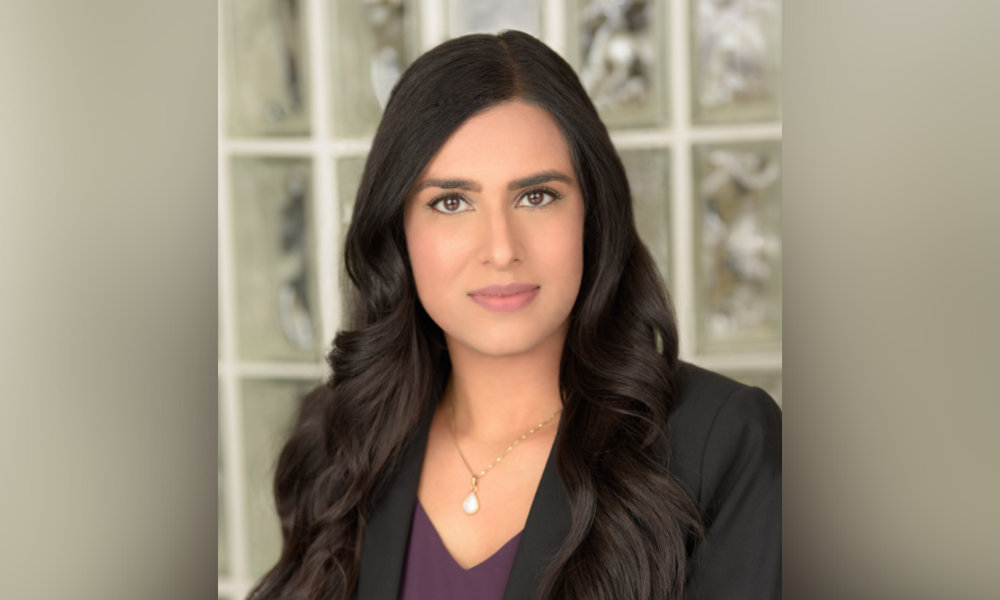
Lawyers should be aware that for clients with PTSD, going through a legal case can be traumatic

Medical front liners are leaving the medical profession because of prolonged trauma caused by the coronavirus pandemic, says Rupa Karyampudi, a partner at MK Disability Lawyers LLP.
Karyampudi says healthcare workers need more understanding and support in processing the “relentless” trauma they have faced since the onset of the pandemic.
From the beginning of the pandemic, she says healthcare workers have witnessed the deaths of many people, including co-workers that have made the profession challenging. “A lot of them are working long hours, and they’re worried about bringing the disease home.
“It’s been quite traumatic, and they haven’t really been able to process it [COVID] because it’s been ongoing.”
Post-traumatic stress disorder symptoms can get worse for those on the medical front lines if it goes untreated because the pandemic is “very much like a battlefield,” Karyampudi says.
She says many healthcare workers leave the profession because of the stigma of seeking mental health treatment and a lack of support.
“They’re taught to soldier on and care for others before themselves, so they’re not getting the treatment they need to deal with their symptoms of PTSD, and unfortunately, I’ve seen a lot of people wanting to leave the profession or just quitting.”
Karyampudi recommends that medical professionals should talk to a disability lawyer before choosing to leave the profession. “They may be able to get disability benefits and time off to get treatment.”
She says disability lawyers can be crucial assets in helping frontline workers get the appropriate treatment they need and prove to insurance companies they have PTSD, which “can be quite re-traumatizing.”
It is challenging to prove mental health illness to insurance companies because it is “an invisible illness and has no objective medical evidence,” she says.
“It’s all based on the person’s self-reported symptoms so, that’s always a challenge with any disability case, as with these invisible disabilities.
“You have to tell [insurance companies] your symptoms and triggers, and that can be very traumatizing.”
Karyampudi says lawyers should be aware that for clients with PTSD, going through litigation can be traumatic and work to reduce “retriggering” as much as possible.
Lawyers should be conscious of the traumas their clients may be facing and understand that sometimes clients need a break, she says.
“It’s really just being mindful of what we can do from our end to make things least stressful as possible and not retriggering our clients and just giving them space. We’re very legally trained when we ask questions. We want to get the answers, but we’re not giving space for people to come as they are with their trauma.”
Catering to frontline workers with PTSD by providing accurate information and talking to them in environments where they feel comfortable without barriers is vital to making them feel empowered, says Karyampudi.
“Sometimes, as they come in, they want to bring a support person. I’ve had people bring their support animal on video with them.”
She says systemic changes are needed to accommodate mental health dialogue and treatment.
“Mental health services should be readily available to frontline workers without even having to seek it, to be quite honest. It needs to be more regular and just as common as getting a physical check-up.”
Karyampudi says recognizing mental health stigma in the healthcare industry is also essential in supporting medical frontline workers.
“There’s a stigma that if you admit to mental health issues, that means you’re weak or not competent to do your job. So, I think it starts from there.”
She says support groups and spaces for frontline workers going through mental health issues are essential in supporting health care workers. In addition, if healthcare workers are more forthcoming in their experience with PTSD, “it would help advocate for more mental health resources.
“At the end of the day, you need a few people who are brave enough to talk about it, and once it’s recognized that many people are suffering from PTSD and anxiety and all these related conditions, I think the governing body or the hospitals will have to do something because the last thing they want is more people to quit.”